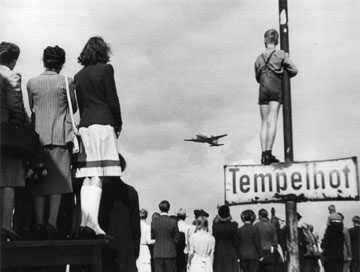...Geographical investment thesisPrivate equity: Bullish on China.
Piracy: Opportunities on the coast of Africa.
Start-up costs
Piracy: Gun, boats, a handful of men, rocket-propelled grenades.
Private equity: Office on Park Avenue.
Jargon
Private equity: “Internal rate of return,” called IRR.
Piracy: Eerily similar: “Aaar.”>>>MUCH MORE
Original Post:
This is an example of the simple truths* I was rambling on about in yesterday's "The American People Have Voted on the GM Bailout. The Answer is NO".
Remember $50 a Barrel Oil? It Has Returned.
The catalysts for lower oil prices are massive: reduced economic demand, unwinding of leveraged fund positions, bearish calls on the market, dried-up auto sales, the bursting of the Chinese bubble, and expectations for more worldwide refining capacity.*I wrote about one of my favorite examples of childlike simplicity in "Ag Stocks and The Berlin Airlift (AG; MOS; MON; POT)":On the bullish side of the ledger? Maybe the success of the Somali pirates that recently hijacked Saudi oil super-tanker Sirius Star. But pirates have never been a very long-term bet. It leaves oil likely headed through $50, and from there, “there’s a whole new realm of how low we could possibly go,” says Darin Newsom, DTN senior commodities analyst....MORE
Last night in "Commodities Comeuppance" I said my best guess was that the ag stocks would be up today. When POT and MOS opened down I was reminded of a vignette from the Berlin Airlift.
We're coming up on the 60th anniversary of the Soviet blockade in that June of '48.
During the summer the two million people that the Brits and Americans were trying to feed could get by with two tons of coal per day (over the course of the airlift 80% of the weight hauled was coal) but as the blockade went on, it was apparent that the Sov's. intended to starve the city and it became imperative that an efficient method of delivering coal be found.
During winter the absolute minimum requirement was 3100 tons of coal per day. The little C-47's could haul around three tons per flight. The first week of the airlift, deliveries averaged 90 tons per day. The second week, 1000 tons/day.
It was decided to experiment with a low-speed, low-level drop of coal onto an empty field, the idea being that if it worked, B-29 Superfortress' with a 105 mph stall speed and 22-25 ton capacity would solve the problem.
On the appointed day the senior commanders went to the field, the plane came over, low and slow, dropped the coal, packed 100 pounds to a bag, the bags landed, exploded open, the coal was pulverized and a great black cloud of coal dust covered everyone watching.
One of the Generals, I forget if it was LeMay, Tunner or Smith, said "Doesn't work" and that was that.
When I saw the ag stocks open this morning I thought
"Doesn't work".
The logistics geniuses figured out what needed to be done, took 300 of the 400 10-ton capacity C-54's in the U.S. fleet, developed flight rules so efficient that the Germans called it "die Luftbrücke" (Air Bridge) and on Easter Sunday 1949 in a move to crush the Soviet's spirit, they decided to show off with the "Easter Parade".
In the 1440 minutes of that day, they flew 1398 flights into Berlin delivering 12,940 tons of coal.
The Soviets gave up the blockade the next month, two million people didn't starve or be forced to live under Moscow masters and thousands of kids remembered the candy bars the pilots would tie to handkerchief parachutes and drop as they came into Tempelhof.
39 British and 31 American airmen were killed in crashes during the airlift:...
